The EFP consortium consists of four members:
Austrian Institute of Technology AIT
Institute for Prospective Technological Studies
Manchester Institute of Innovation Research of the University of Manchester
TNO Netherlands Organisation for Applied Scientific Research
The Austrian Institute of Technology is the largest non-university research organization in Austria. AIT is conducting independent research on the fields of foresight and policy development, energy, mobility, health, environment, as well as safety and security. Our researchers collaborate closely with industry and customers from public institutions, striving to increase their added value through innovation and new technologies. We are active in front-end research with national, European and global reach.
The Innovation Systems department at AIT is targeting innovation and sustainability research on the big challenges of our future, such as resource scarcity, climate change, increasing complexity of social and natural systems or globalization. Researchers of this department are investigating the current and future challenges for research and innovation systems and their implications for a holistic approach to research, technology and innovation (RTI) policy.
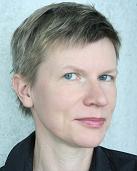 Susanne Giesecke is the project leader of EFP and also responsible for the production of Briefs and the communication with correspondents and other foresight networks.
Susanne Giesecke is the project leader of EFP and also responsible for the production of Briefs and the communication with correspondents and other foresight networks.
Susanne is a Senior Researcher and the Leader of the Research Theme Foresight at the AIT. She received her PhD in political science from the Free University Berlin and functioned as a researcher and lecturer at several universities in Germany, Austria and the United States. She has worked for private and public-private companies and accumulated experience not only in publicly funded research projects for the European Commission and national clients but also in the management of such programs on behalf of national ministries.
Presently, her main focus of work is qualitative innovation research, national innovations systems and competitiveness, technology policy (especially in areas of new and emerging technologies), technology assessment; evaluation of R&D programmes as well as foresight. She has been engaged in several research projects and foresights as well as foresight networks discussing emerging technologies such as biotechnology, the convergence of nano, bio, info and cogno (NBIC), quantum cryptography and other issues related to IT security.
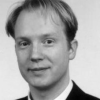 Joachim Klerx is an economist and philosopher by training. In EFP he is responsible for community building, system design and administration of the EFP internet platform.
Joachim Klerx is an economist and philosopher by training. In EFP he is responsible for community building, system design and administration of the EFP internet platform.
Over the last 15 years he has specialized in the development and implementation of large scale information systems for decision support in innovation policy, security policy and risk management. As part of these activities, he has been dealing with textming-based issue managment tools. Over the past years he has designed an innovation information system for the City of Vienna, and contributed to a project dealing with the development of new sectoral efficiency indicators for R&D funding. He has managed the development of the database for CONCERTO Plus, a contract research from the EU to support the dissemination of 18 integrated projects from the CONCERTO Initiative. Other areas of expertise are in agent-based modelling and simulation, in particular of political agents. He was one of the main developer of INTSIM, an interactive gaming and simulation platform for simulation of a national innovation system in a virtual 3d world. In the EU project SESTI, he developed software agents with artificial intelligence to identify weak signals for emerging policy issues on the internet. His current research interest is to develop software for strategic planning and agenda setting.
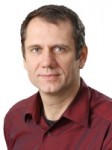 Matthias Weber is Head of Research, Technology and Innovation Policy Unit at AIT Foresight & Policy Development Department.
Matthias Weber is Head of Research, Technology and Innovation Policy Unit at AIT Foresight & Policy Development Department.
He has been working for many years on foresight in support of national and European research, technology and innovation (RTI) policy. His expertise covers a broad range of thematic areas (ICT, transport, energy, security, environment) as well as cross-cutting issues of RTI-policy (strategic and multi-level governance, priority setting).
He is advising national and European institutions on matters of policy strategy related to RTI, and he was a member of the EC high-level groups on Key Technologies (2005) and on ERA Rationales (2007). Among other functions, he is also President of the European Techno-Economic Policy Support Network ETEPS, lecturer of innovation economics at Vienna University of Economics, and member of the steering board of the IEV Innovation Economics Vienna joint Master- and PhD-programme between AIT and Vienna University of Economics.
His current research interests include the impact of foresight on policy-making, the integration of innovation in sectoral and cross-cutting policies, and the governance of R&D collaboration networks.
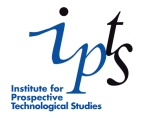
The Institute for Prospective Technological Studies is one of the seven scientific institutes of the European Commission’s Joint Research Centre (JRC). It is located in Seville, Spain. The Institute’s main activities relate to providing strategic support for the conception and development of EU policies. The Institute’s portfolio of work is managed by five scientific units: Agriculture and Life Sciences in the Economy; Economics of Climate Change, Energy and Transport; Information Society; Knowledge for Growth; and Sustainable Consumption and Production.
Within the Knowledge for Growth unit, the European foresight team provides forward looking intelligence to support decision making and enhances the use of Foresight to support policy making within the European Research Area (ERA). JRC-IPTS has a long history of leading-edge engagement in the development and practice of Foresight, and is well regarded in the research community for its expertise, and ground-breaking work. The JRC-IPTS is contributing, through the activities of the foresight team to strengthen and better systematise competencies at European level on Foresight related issues. There are three main lines of activity:1) Foresight enhancement through knowledge generation and transfer through the biannual Seville International FTA Conference and the Online Foresight Guide 2) support to Foresight actors, especially in New Member States and Candidate Countries; and 3) joint application of Foresight in specific policy fields by applying techniques for gathering anticipatory intelligence on innovation processes and their socio-economic conditions and implications.
Mark Boden is the JRC Action Leader for “ERA policy mixes, joint programming and foresight” within the Knowledge for Growth Unit at the IPTS, and is responsible for the ERAWATCH and NETWATCH information platforms, as well as foresight activities. He has been at IPTS since 2002. Prior to joining IPTS he was a Research Fellow with PREST at the University of Manchester, where he worked on various aspects of science and technology policy for more than 15 years. He holds a PhD in the economics of technological change, and has also held visiting research fellowships in Japan and France.
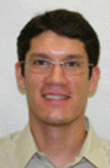 Cristiano Hugo Cagnin is a scientific officer at JRC-IPTS and contributing to EFP development. He is an industrial engineer who has been previously involved in research, projects and consultancy in innovation, business strategy, environment management, and in cleaner production. He is currently engaged in business sustainability as well as RTDI and foresight research and practice. He is actively working on EU projects related to sustainable manufacturing, RTDI priority setting and regional coordination as well as joint programming, and in supporting policy making through the early identification of weak signals of emerging issues. He is also concerned in supporting mutual learning on foresight across and beyond Europe, in further developing foresight as a discipline both through research and the biannual FTA Conference series, and in establishing and strengthening linkages between European and International Institutions and those in developing countries.
Cristiano Hugo Cagnin is a scientific officer at JRC-IPTS and contributing to EFP development. He is an industrial engineer who has been previously involved in research, projects and consultancy in innovation, business strategy, environment management, and in cleaner production. He is currently engaged in business sustainability as well as RTDI and foresight research and practice. He is actively working on EU projects related to sustainable manufacturing, RTDI priority setting and regional coordination as well as joint programming, and in supporting policy making through the early identification of weak signals of emerging issues. He is also concerned in supporting mutual learning on foresight across and beyond Europe, in further developing foresight as a discipline both through research and the biannual FTA Conference series, and in establishing and strengthening linkages between European and International Institutions and those in developing countries.
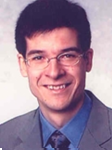 Vicente Carabias is a scientific officer at JRC-IPTS and contributing to EFP development. He holds a MSc in Environmental Sciences from the ETHZ Swiss Federal Institute of Technology Zurich (1996). He is currently in charge of contributing foresight expertise towards different FP7 projects, e.g. ERA.Net RUS, and to explore the future state of the world in 2025 as well as the related policy implications for the EU. Formerly he was responsible for European cooperation at the ZHAW Institute of Sustainable Development. Leading the Swiss contribution to FP5- and FP6-projects he is experienced in multi-cultural collaboration and networking. Within national and international projects, he has contributed to the development and application of sustainability indicator systems as well as to foresight-research by applying the Delphi-method and Scenario Construction in various regional contexts.
Vicente Carabias is a scientific officer at JRC-IPTS and contributing to EFP development. He holds a MSc in Environmental Sciences from the ETHZ Swiss Federal Institute of Technology Zurich (1996). He is currently in charge of contributing foresight expertise towards different FP7 projects, e.g. ERA.Net RUS, and to explore the future state of the world in 2025 as well as the related policy implications for the EU. Formerly he was responsible for European cooperation at the ZHAW Institute of Sustainable Development. Leading the Swiss contribution to FP5- and FP6-projects he is experienced in multi-cultural collaboration and networking. Within national and international projects, he has contributed to the development and application of sustainability indicator systems as well as to foresight-research by applying the Delphi-method and Scenario Construction in various regional contexts.
 Karel Haegeman is a scientific officer at JRC-IPTS and contributing to EFP development. He has masters in business economics and in marketing, and has previously worked in innovation policy, general economic policy, project management and market research. His activities focus on the development of new thematic Foresight activities, and developing and implementing strategies to further advance the general use of Foresight in the European Union. He has a specific interest in foresight for RTDI and joint programming, in new ways for combining qualitative and quantitative methods, and in the future of the low carbon society.
Karel Haegeman is a scientific officer at JRC-IPTS and contributing to EFP development. He has masters in business economics and in marketing, and has previously worked in innovation policy, general economic policy, project management and market research. His activities focus on the development of new thematic Foresight activities, and developing and implementing strategies to further advance the general use of Foresight in the European Union. He has a specific interest in foresight for RTDI and joint programming, in new ways for combining qualitative and quantitative methods, and in the future of the low carbon society.
Manchester Institute of Innovation Research of the University of Manchester was founded in 1977 and its research activities are based on a tradition of science, technology and innovation (STI) and Foresight studies going as far back as 1960s (liberal studies of science). Since 2002, MIOIR’s research can conveniently be grouped into five broad areas: (1) Innovation Studies; (2) Evaluation Research; (3) Science and Technology Policy; (4) Foresight Practice and Research; and (5) Environmental and other issues. MIOIR has a substantial programme of activity that takes a prospective view of developments in science and technology in their economic, social, political and managerial context. Work in this domain includes methodological and applied projects, both with a broad scope and applied to particular areas of technology. MIOIR also offer a short, intensive course on Foresight for Sponsors, Organisers and Practitioners, drawing upon our experience of methodological and applied projects.
MIOIR has long experience in the use of creative and interactive methods (both face-to-face and online) to generate new ideas around a specific area of interest. MIOIR has carried out several Foresight projects (international, regional, national, sub-national, sectoral and thematic) where online activities, such as Delphi surveys, and findings have been effectively used to prepare recommendations, action-plans, roadmaps, etc. In the field of Foresight, MIOIR has well-established capacities in each of the five phases of the Foresight process, which include: (1) the Pre-Foresight or Design Phase where general and specific objectives are defined, the project team assembled and the methodology designed; (2) the Recruitment Phase, where key stakeholders and individuals are identified and invited to support and contribute to the project activities; (3) the Generation Phase, where ‘new’ knowledge and visions normally are produced from the elucidation of emerging issues or from the amalgamation of existing knowledge; (4) the Action Phase, where prioritisation and decision-making may speed up innovation and change through the promotion of particular policies, strategies, technologies, instruments, etc. – or to changing attitudes and lifestyles; and (5) the Renewal Phase, where constant monitoring and evaluation are required in order to assess whether the Foresight process has contributed to achieve initial objectives and how far outcomes are being acted on.
 Rafael Popper is the Leader of the EFP Mapping Team and has more than 10 years experience as a foresight researcher and practitioner. Since 2002 he is based at PREST Manchester Institute of Innovation Research of the University of Manchester. Before moving to the UK he worked for the United Nations Industrial Development Organisation (UNIDO) and the International Centre for Science and High Technology (ICS) in Italy as manager of the capacity building activities of the Technology Foresight Programme for Latin America and the Caribbean (TFLAC). During this time he also designed and delivered training courses for UNIDO Technology Foresight Programme for Central and Easter Europe and Newly Independent States (TFCEE/NIS). Since the late 1990s he has been a pioneer of online foresight tools, developing the first commercial foresight package. He is also known for raising the profile of Latin American foresight and for designing and leading the first evaluation of a national foresight programme in this region (i.e. the Evaluation of the Colombian Foresight Programme). In the foresight community, Rafael is recognised for his contributions to foresight practices and methodologies and, as a result, in 2009 he received two Emerald Literati Network Awards for Excellence. He is also co-editor of an Edward Elgar’s Book of the Month: “The Handbook of Technology Foresight” and he lead the Mapping acticities of the European Foresight Monitoring Network (EFMN).
Rafael Popper is the Leader of the EFP Mapping Team and has more than 10 years experience as a foresight researcher and practitioner. Since 2002 he is based at PREST Manchester Institute of Innovation Research of the University of Manchester. Before moving to the UK he worked for the United Nations Industrial Development Organisation (UNIDO) and the International Centre for Science and High Technology (ICS) in Italy as manager of the capacity building activities of the Technology Foresight Programme for Latin America and the Caribbean (TFLAC). During this time he also designed and delivered training courses for UNIDO Technology Foresight Programme for Central and Easter Europe and Newly Independent States (TFCEE/NIS). Since the late 1990s he has been a pioneer of online foresight tools, developing the first commercial foresight package. He is also known for raising the profile of Latin American foresight and for designing and leading the first evaluation of a national foresight programme in this region (i.e. the Evaluation of the Colombian Foresight Programme). In the foresight community, Rafael is recognised for his contributions to foresight practices and methodologies and, as a result, in 2009 he received two Emerald Literati Network Awards for Excellence. He is also co-editor of an Edward Elgar’s Book of the Month: “The Handbook of Technology Foresight” and he lead the Mapping acticities of the European Foresight Monitoring Network (EFMN).
Luke Georghiou is Professor of Science & Technology Policy and Management and Associate Dean of Research within the Faculty of Humanities at the University of Manchester. Luke is also a Director of PREST, Manchester Institute of Innovation Research, and has been on its staff since 1977. His research interests include evaluation of R&D and innovation policy, foresight, national and international science policy, and management of science and technology. Recent projects include several studies of industry–science relations, policy for international scientific cooperation, evaluation of foresight, public procurement for innovation and changes in public sector research institutions. During 2006 he chaired the evaluation of the EUREKA Initiative and was member and rapporteur of the Aho Group report on Creating and Innovative Europe. He has recently chaired committees on rationales for the European Research Area on behalf of the European Commission, and the Evaluation of Futur – the German Foresight programme and TEP – the Hungarian Foresight Programme. He is an elected member of the Board of Governors of the University of Manchester and a member of the Board of Directors of Manchester Science Park Limited.
Ian Miles is Professor of Technological Innovation and Social Change at the University of Manchester. He is based in the Institute of Innovation Re-search, and was appointed a CoDirector of PREST in 1990. His original training was as a social psychologist, and he spent almost twenty years at the Science Policy Research Unit, University of Sussex. Apart from being engaged in Foresight, his work has focused on innovation studies (especially on services innovation); social aspects of IT (especially with respect to working life and consumer activities); and research evaluation, science policy studies, and social indicators and quality of life issues.
Yanuar Nugroho is Research Associate at the University of Manchester. His research interests evolves around the topics of technological innovation, particularly adoption and diffusion of innovations in third sector (non-governmental, non-for-profit organisations), innovation and sustainable development, and new communication media and social change. In the first strand, his work has been focussing on how techno-logical innovations diffuse in and are adopted by third sector organisations and investigating the impacts of such diffusion/adoption. In the second strand, Yanuar focuses on the role of innovation in development, particularly in sustainable development and/in developing countries. Lastly, his works on the link between new media and information technologies and social change looks at how new communication technology like the Internet and Web 2.0 propagates and alters the nature of communication and interaction as the fabrics of societal life.
Thordis Sveinsdottir is a Research Assistant at the University of Manchester. Her research interests focus on patterns of social and cultural interaction within new media and communication technologies. After finishing her PhD in Sociology, where she focused on identity in online communities, she has been a research assistant on various research projects, both at the University of Surrey and at the University of Manchester. These have focused on e.g. public perceptions of renewable energy technologies, new technologies as tools for facilitating for social inclusion and foresight research in Europe. Thordis has also lectured in Sociology at the University of Surrey.
TNO Netherlands Organisation for Applied Scientific Research was founded in 1932 by act of parliament to make scientific research applicable for companies and governments. As a public organisation TNO has an independent position that enables us to provide objective and scientific assessments. At the start of 2006 TNO employed 4.800. TNO cooperates with dozens of companies, governments, research organisations and universities in Europe.
The department of Strategies for the Information Society counts 25 researchers and is specialised in policy research related to ICT, media and innovation. Key competencies are foresight, monitoring, policy evaluations and impact assessment, business modelling, user studies, and market analysis.
The core areas of research and consultancy in TNO Department Strategies for the Information Society are Strategic studies of innovation, analysis and evaluation of science, technology and industrial policies, Policies and strategies in information, communications and media, policies and strategies for sustainable development, assessment of socio-economic implications of technology and user-oriented innovation.
 Annelieke van der Giessen is researcher and consultant at TNO, The Netherlands Organisation for Applied Scientific Research (Delft, the Netherlands). Annelieke joined TNO in 2001. She specialises in research and innovation policy. She has special interest in national and sectoral systems of innovation (ICT, Space, Life Sciences), the policy mix for innovation, the impact of R&D programmes as well as foresight and impact assessment of the technological and socio-economic aspects of emerging technologies. Research methods include policy evaluation and monitoring, impact assessment, benchmarking, analysis of innovation systems, business models and foresight.
Annelieke van der Giessen is researcher and consultant at TNO, The Netherlands Organisation for Applied Scientific Research (Delft, the Netherlands). Annelieke joined TNO in 2001. She specialises in research and innovation policy. She has special interest in national and sectoral systems of innovation (ICT, Space, Life Sciences), the policy mix for innovation, the impact of R&D programmes as well as foresight and impact assessment of the technological and socio-economic aspects of emerging technologies. Research methods include policy evaluation and monitoring, impact assessment, benchmarking, analysis of innovation systems, business models and foresight.
She has worked in several EU and national projects on analysing and benchmarking science, technology and innovation policies, in particular for life sciences, ICT and future emerging technologies. Clients include the European Commission (DG Enterprise and Industry, DG Information Society and Media, DG Research, DG Employment, Social Affairs and Equal Opportunities), the Institute for Prospective Technological Studies (JRC-IPTS), Organisation for Economic Co-operation and Development (OECD), the Dutch Ministries of Economic Affairs; Agriculture, Nature and Food Quality; Education, Culture and Sciences; the Interior and Kingdom Relations, the Netherlands Genomics Initiative, and the Rathenau Institute.
Since 2003, Annelieke has been responsible for the secretariat of the Six Countries Programme – The Innovation Policy Network. This is an informal expert network of research and innovation policy researchers and policy makers from various countries. She has a diploma in Small Business Management from Haarlem Business School and holds a masters degree in Business Studies, specialization in management of technology and innovation, from the Erasmus University Rotterdam, Business Studies.
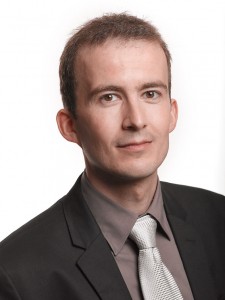 Bas van Schoonhoven is also researcher at TNO, The Netherlands Organisation for Applied Scientific Research (Groningen, the Netherlands). He works there since 2007, and specialises in the societal impact of information technologies, in particular privacy issues.
Bas van Schoonhoven is also researcher at TNO, The Netherlands Organisation for Applied Scientific Research (Groningen, the Netherlands). He works there since 2007, and specialises in the societal impact of information technologies, in particular privacy issues.
Bas has a mixed educational background in Computer Science and Philosophy of Science, Technology and Society at the University of Twente, the Netherlands. He combines technical expertise in software development with strong analytical skills and reflective capabilities on the role of science and technology in society. In his work he tries to bridge the “gap” between technical and social science and practices, and between the practical and the theoretical.
In 2007 Bas did an internship at the Dutch foresight institute the “Stichting Toekomstbeeld der Techniek” in The Hague, and assisted in a foresight study on the role of technology in religion, “Deus et Machina”. In the EFP project he assists in the community building, managing the website content, and performing other project tasks.


